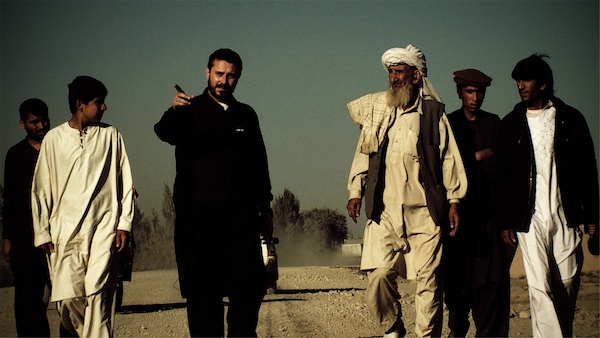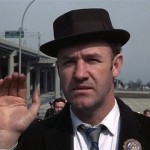Dirty Wars Review
Dirty Wars is a devastating experience. It’s a film that chews up your hopeful, idealistic illusions regarding American leadership, spits them out, and leaves a cruise-missile-sized hole in your heart for good measure. Drone strikes and extra-covert military operations (including those that occur in nation-states we aren’t formally at war with) have been covered with regularity—if not tenacity—by the media over the past few years. Dirty Wars does what all of these news reports have failed to. It holds truth to power and shines a light on the ugliest side of our international affairs.
The film is told from the point of view of war correspondent for The Nation magazine Jeremy Scahill, who begins the film in Afghanistan, reporting on a raid in a remote corner of Afghanistan that killed a number of civilians including two pregnant women. A number of peculiarities—like the fact that eyewitnesses reported seeing men removing bullets from the bodies—cause Scahill to follow a trail of breadcrumbs that leads him to Yemen and Somalia. The result of his reporting: this movie, its book companion, a lot of paranoia, and some serious disillusionment.
Scahill shares it all with us and rarely leaves the frame, which gives this documentary more of a cinematic feel to it than it might otherwise have if told through talking heads (a technique that likely would have been impossible considering the sensitive material we’re dealing with here). We’re not just getting fed information, but we’re also following a man on a journey. This journey takes him to some frightening places (I’m not planning a trip to Somalia any time soon), and introduces him to some frightening dudes. By its conclusion, he’s changed. It’s a unique take on the genre, and while I’ll admit it leads to some affected narration, I wouldn’t imagine Dirty Wars any other way. This is a much more emotional experience than you’d ever expect.
Scahill’s findings all come back to something called JSOC, or Joint Special Operations Command, which reports directly to the White House. Seal Team Six, of course, is part of this group. It’s also credited with the drone strike in Yemen that targeted and killed Anwar al-Awlaki, an al-Qaeda member who also happened to be an American citizen. It’s when covering the al-Awlaki case that the film hits hardest, and though the facts and aftermath of the case are readily available, I’ll leave the more horrifying details for you to discover, just in case.
No one emerges from Dirty Wars unscathed, which is the most disheartening prospect of all. President Obama—a beacon of peace—comes across as nothing more than a smarter, more hawkish version of Bush. When Scahill describes the unlawful imprisonment of a Yemeni journalist and the circumstances by which Obama kept him in prison, you’ll bury your head and your hands and just pray it doesn’t get worse (spoiler alert: it does).
I’m sure this review has done little to make you want to experience Dirty Wars, but I implore you to try. Not only is it one of the most important documentaries in recent memory, it’s also one of the very best films of 2013. It’s courageous, informative, moving, and absolutely sickening at times, but it’s something the public absolutely needs.















